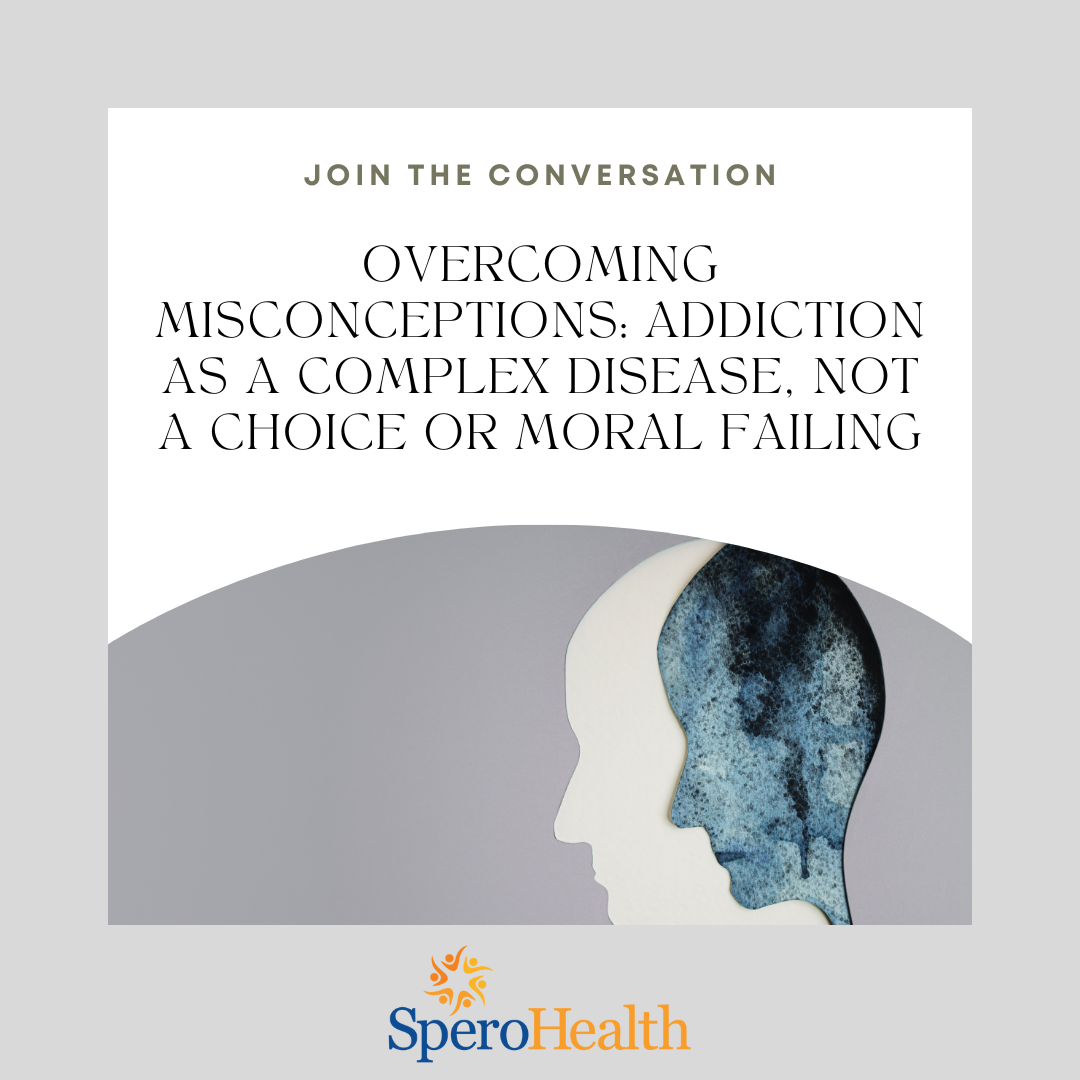Addiction has long been misunderstood and stigmatized, with many people erroneously believing that it is solely a matter of personal choice or a reflection of moral weakness. However, scientific research and advancements in the field of addiction medicine have revealed that addiction is a complex disease that involves changes in brain chemistry and functioning. In this article, we will delve into the true nature of addiction and address the misconception that it is a choice or moral failing. Furthermore, we will explore the efforts of how Spero Health, a leading provider of addiction treatment, is working tirelessly to make a positive impact in our communities.
Understanding Addiction as a Disease:
Contrary to popular belief, addiction is not a matter of sheer willpower or a conscious decision to engage in destructive behaviors. It is a chronic, relapsing brain disease that affects individuals from all walks of life. Addiction causes profound changes in the brain’s reward system, leading to intense cravings, compulsive drug-seeking behavior, and an inability to control substance use despite negative consequences.
Neuroscience and Addiction:
Extensive research has shown that addiction is rooted in neurobiology. Repeated exposure to addictive substances or behaviors alters the brain’s structure and function, specifically affecting regions responsible for decision-making, impulse control, and reward processing. These changes create a powerful drive to seek and use the addictive substance, making it extremely difficult for individuals to quit without professional help.
The Role of Genetics and Environment:
While genetics play a role in an individual’s susceptibility to addiction, environmental factors also significantly contribute to its development. Adverse childhood experiences, trauma, social isolation, and mental health disorders can increase the risk of addiction. It is crucial to recognize that no one chooses to become addicted, and blaming individuals for their struggles only perpetuates the stigma surrounding addiction.
Debunking Moral Failing and Judgment:
Labeling addiction as a moral failing is not only scientifically inaccurate but also harmful. The misconception that addiction is a choice often leads to judgment, isolation, and a lack of empathy towards those grappling with this disease. Addiction affects people of all backgrounds, regardless of their morality or character. By understanding addiction as a disease, we can approach it with compassion, support, and evidence-based treatments.
Spero Health: Empowering Communities with Addiction Treatment:
In the fight against addiction, Spero Health is making a significant difference in communities across the country. We provide accessible, high-quality addiction treatment that addresses the biological, psychological, and social aspects of the disease. Our comprehensive approach includes medication-assisted treatment (MAT), counseling, and support services. By combining FDA-approved medications, such as buprenorphine and vivitrol, with counseling and behavioral therapies, we help individuals manage cravings, stabilize their lives, and work towards sustainable recovery. We prioritize personalized care, tailoring treatment plans to meet each patient’s unique needs and circumstances. Additionally, we offer integrated care that addresses co-occurring mental health disorders, recognizing the interconnected nature of addiction and mental health.
Spero Health’s community-based approach provides convenient access to treatment, reducing barriers to care and promoting long-term recovery. Through collaboration with local healthcare providers, community organizations, and law enforcement agencies, Spero Health is actively involved in building a network of support and resources for individuals and families affected by addiction.
Addiction is not a choice or a moral failing; it is a complex disease that requires comprehensive treatment and support. By dispelling the misconceptions surrounding addiction, we can foster a more compassionate and effective approach to helping those in need.
